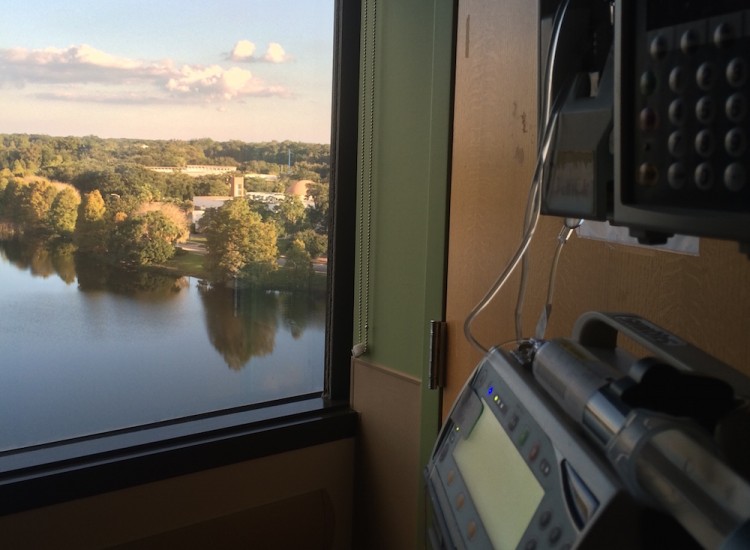To the Impatient Chronic Illness Patients Whose Treatments Have Failed
I am no stranger to the treatments for my conditions. Many still remain experimental for mast cell disease, postural orthostatic tachycardia syndrome and Ehlers-Danlos syndrome, also known as the “trio” of diagnoses plaguing my body. Much experience comes from numerous years of dealing with illness. Despite how vast that number may be, the perplexed expressions that line the faces of my doctors rarely becomes easier to witness over time. The job of a doctor is to make their patients better. It is terrifying for both parties when the realization hits that there are not many options left at this time.
While staring at the tiles that line the hospital ceiling and contemplating the last 120-something days of my inpatient stay, there is no other recourse away from the truth. Sometimes treatments fail. As the newest disaster strikes, I have my doctor of over two years in hysterics after proclaiming the obvious, “Something is really wrong with me!” However, not getting better is not my fault. It is not necessarily anyone’s fault that sometimes bodies do not respond like they should to the therapies that they should.
If you are currently like me, treatments fail more often than not. For those of you in the same situation, it is OK to be angry. The frustration of discarding yet another nearly-full pill bottle that did not do as it should is disheartening. Injecting the body with the latest immunosuppressive agent that provides more side effects than benefits wears on us all eventually. Some days, all of the strength leaves our bodies, rather than unwanted symptoms, after the umpteenth medication infusion.
It is OK to be impatient for our time of health. Sometimes I feel as if I am in a constant state of impatience. Being sick is quite the waiting game, because life does not stop for us. It does not wait to resume again once we heal. We watch the world pass us by rather than truly living. Instead, we are left researching medications, fad diets and perhaps even your grandmother’s ancient hippie remedy from 50 years ago — all the while expecting something to halt what may at times seem inevitable.
What works for one patient does not benefit all. Each prescription and vitamin cocktail differs for patients. The “ideal lifestyle” does not always have the ability to ward off disease. Having all of the support in the world cannot make us better. No amount of positive thinking can alter our genes. Those can be harsh truths, and it is OK to be upset. The emotions you feel when you cannot recognize your own body any longer are overwhelming. Medical interventions are meant to buy time until the next new drug — until our next supposed miracle cure.
While all the negative emotions surrounding the failed treatments are to be expected, some positives accompany them, too. Every new treatment trial teaches a lesson of hope, faith and endurance. We hope with all of our might that the next one will work. It may be hard to believe at times, but we have faith our health can improve.
Lastly, we are taught the endurance to keep fighting and living. Remember to keep fighting —until the actual cure is found.

The Mighty is asking the following: Write a letter to anyone you wish had a better understanding of your experience with disability and/or disease. If you’d like to participate, please send a blog post to community@themighty.com. Please include a photo for the piece, a photo of yourself and 1-2 sentence bio. Check out our Share Your Story page for more about our submission guidelines.
